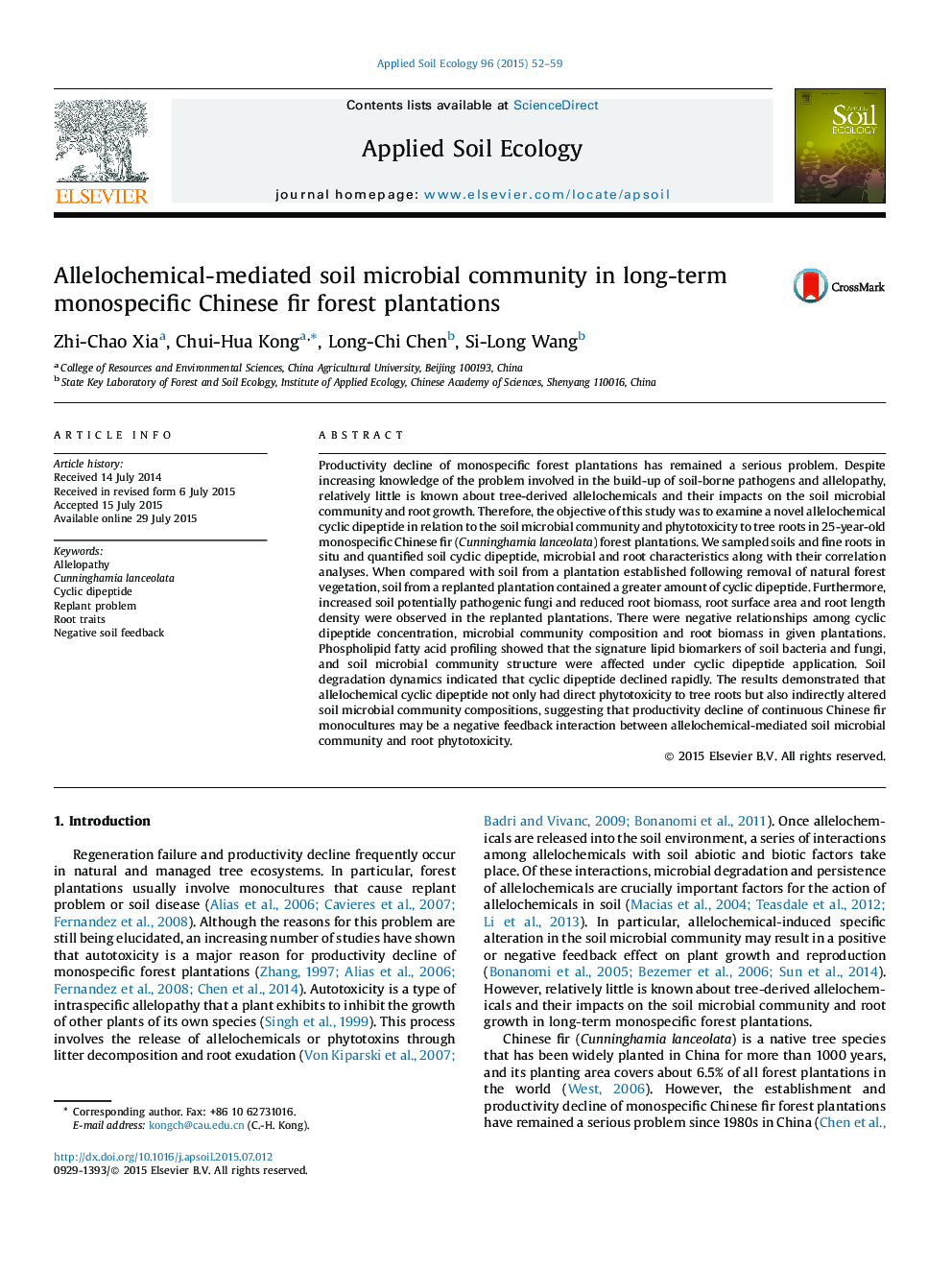| Article ID | Journal | Published Year | Pages | File Type |
|---|---|---|---|---|
| 4381895 | Applied Soil Ecology | 2015 | 8 Pages |
•An allelochemical cyclic dipeptide was found in monospecific Chinese fir plantations.•Replanting increases soil allelochemical and pathogenic fungi but reduces root biomass.•Cyclic dipeptide has negative correlations with soil microbe and root biomass.•Allelochemical context alters soil microbial community and contributes to replant problem.
Productivity decline of monospecific forest plantations has remained a serious problem. Despite increasing knowledge of the problem involved in the build-up of soil-borne pathogens and allelopathy, relatively little is known about tree-derived allelochemicals and their impacts on the soil microbial community and root growth. Therefore, the objective of this study was to examine a novel allelochemical cyclic dipeptide in relation to the soil microbial community and phytotoxicity to tree roots in 25-year-old monospecific Chinese fir (Cunninghamia lanceolata) forest plantations. We sampled soils and fine roots in situ and quantified soil cyclic dipeptide, microbial and root characteristics along with their correlation analyses. When compared with soil from a plantation established following removal of natural forest vegetation, soil from a replanted plantation contained a greater amount of cyclic dipeptide. Furthermore, increased soil potentially pathogenic fungi and reduced root biomass, root surface area and root length density were observed in the replanted plantations. There were negative relationships among cyclic dipeptide concentration, microbial community composition and root biomass in given plantations. Phospholipid fatty acid profiling showed that the signature lipid biomarkers of soil bacteria and fungi, and soil microbial community structure were affected under cyclic dipeptide application. Soil degradation dynamics indicated that cyclic dipeptide declined rapidly. The results demonstrated that allelochemical cyclic dipeptide not only had direct phytotoxicity to tree roots but also indirectly altered soil microbial community compositions, suggesting that productivity decline of continuous Chinese fir monocultures may be a negative feedback interaction between allelochemical-mediated soil microbial community and root phytotoxicity.
